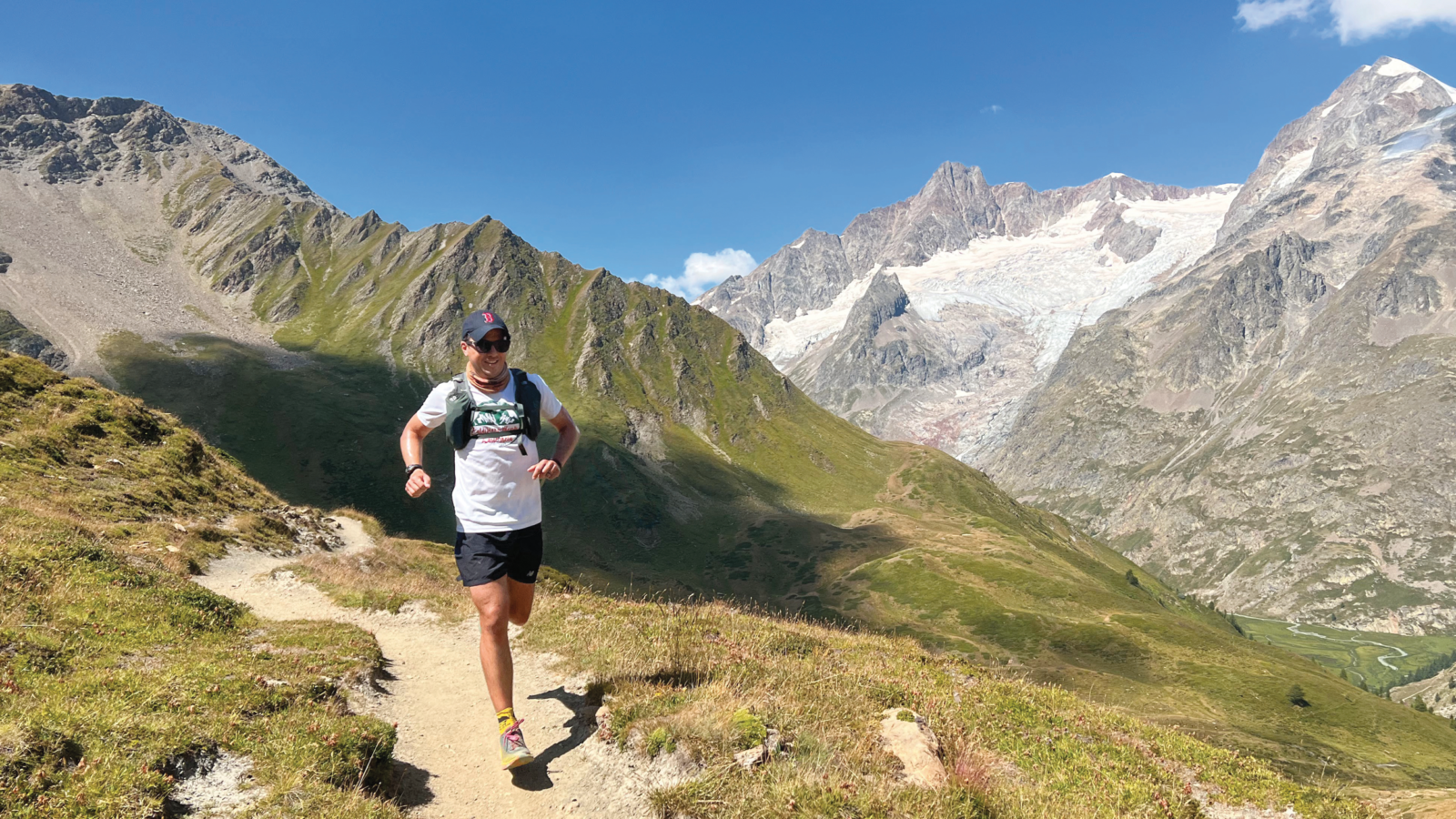Thanks to the Cain Sabbatical Fund, faculty member and head track and field coach Chris Pelliccia was able to combine his love of science and running while on the trail
In early August, faculty member Chris Pelliccia had an awe-inspiring moment. It was the third day of the Tour de Mont Blanc, a seven-day mountain running trip during which Pelliccia and 11 other avid trail runners circumnavigated Mont Blanc, covering 100 miles on trails through the Alps in France, Switzerland, and Italy.
“We woke up at a mountain refuge in France,” explained Pelliccia, who at Williston teaches chemistry, heads the science department, and serves as head track and field coach. “It was absolutely wild, no paved roads, super remote.” The group “power hiked” to a mountain pass which would take them into Italy.
“Standing on a mountain pass looking down into Italy and having this bonkers run in front of us, this beautiful winding dirt trail down the Aosta Valley—it was absolutely unreal,” Pelliccia says.
Pelliccia’s trip was made possible by Williston’s endowed Cain Family Sabbatical Fund. Established in 1987 by Dan Cain ’64 and Jim Cain ’68, the fund underwrites summer travel opportunities for Williston faculty that serve both professional and personal goals. The central purpose is to enable a faculty member to have an experience that they might not otherwise be able to afford. Williston’s teaching faculty become eligible for this summer enrichment grant on a rotating basis every four years.
Pelliccia’s Mont Blanc group, led by a guide, covered 17 to 19 miles per day. Sights along the trail included Mont Blanc, the highest peak in Western Europe, and La Casermetta al Col de la Seigne, an alpine museum where the group learned about the history and geology of the Mont Blanc range; native animals such as marmot and ibex; and, of particular note to Pelliccia, the area’s “rapidly receding glaciers.”
Those glaciers, and the forces impacting their future, piqued Pelliccia’s interest. “Part of my scientific interest is it’s this incredibly beautiful location that attracts a lot of visitors, but because it’s so beautiful, these visitors place a burden on the ecosystem,” he explained. A similar situation is created by the numerous ski resorts, he noted, which give access to world-class adventure “but create a mark on the terrain.”
Pelliccia’s predominant reason for taking the trip, however, was rooted in his role as head track and field coach. “Each person was inspired to do this for slightly different reasons,” he said. “Each person went through highs and lows,” he noted, but despite minor injuries, fatigue, and varied skill levels, the members of the group banded together from day one to make sure everyone felt encouraged.
Staying positive while facing 19 miles of Alps with blisters and sore knees is a lesson Pelliccia plans to bring back and instill in his Wildcat runners for the upcoming track and field season.
“Positive talk and encouragement can really help your teammates through a hard workout,” he explained. In working with his athletes, Pelliccia said he’s hoping to relay the feelings, the encouragement, and the camaraderie he had during those seven days on the mountain.
“Even just after a tough day,” he said, “getting out there with your buddies has a lifelong value.”

